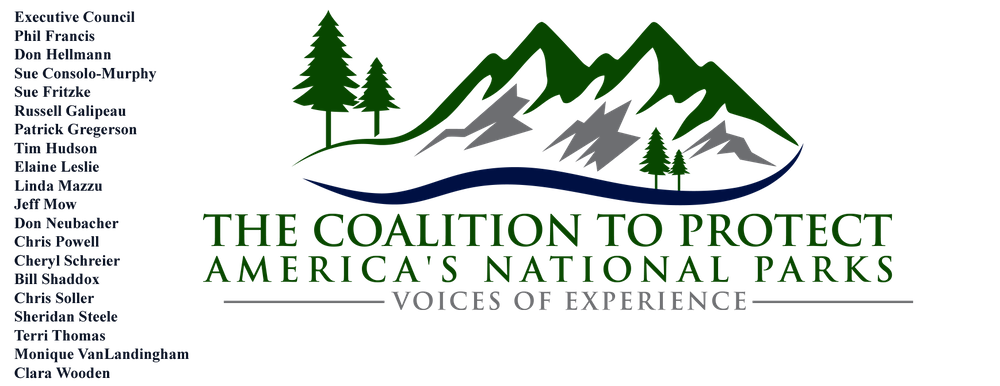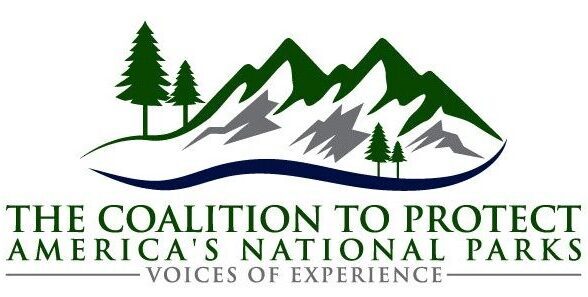
January 26, 2024
Kate Hammond
Regional Director
National Park Service
12795 West Alameda Parkway
Denver, CO 80225
Subject: 2018 Big Bend Livestock Plan Implementation
Dear Regional Director Hammond:
I am writing on behalf of more than 2,500 members of the Coalition to Protect America’s National Parks (Coalition), who collectively represent more than 45,000 years of national park management experience. The Coalition studies, educates, speaks, and acts for the preservation of America’s National Park System. Among our members are former NPS directors, regional directors, superintendents, resource specialists, park rangers, maintenance and administrative staff, and a full array of other former employees, volunteers, and supporters.
We are writing to express our concerns about the inconsistent implementation of the 2018 Big Bend National Park (BIBE) Livestock Plan (Plan). This Plan is very well-written and researched, as indicated by your Acting Regional Director signing the Finding of No Significant Impact on November 9, 2018.
We understand there have been a series of Acting Superintendents since Superintendent Krumenacker retired and that hiring a new superintendent is currently in process. We request that this Plan become a high priority for the park and region.
We have been closely monitoring livestock plans within the NPS, in addition to park units implementing policy in regard to non-native, exotic, and trespass animals in units such as Mesa Verde (MEVE), Theodore Roosevelt (THRO) and several parks along the east coast. We do applaud the efforts at MEVE and their current efforts to remove horses safely and humanely, while making progress on herd reduction and removal. In addition, at THRO, the Livestock Plan exhibits the park’s and region’s commitment to National Park Service (NPS) law and policy.
The ongoing trespass issues at BIBE primarily consist of livestock being pushed by Mexican owners along the Rio Grande to purposefully graze their horses and cattle in the park. This multi-decade-long problem has reached untenable levels. The density of livestock being released and rotated throughout the park is at the highest levels ever recorded by staff. This is resulting in severe resource damage and a reduced quality visitor experience, including compromising visitor safety due to motor vehicle versus livestock collisions.
BIBE has inconsistently staffed the trespass livestock intervention team following the establishment of the Livestock Plan. In FY23, the team consisted of a Trespass Livestock Coordinator and a Science and Resource Management seasonal. This is insufficient to implement the plan, which was based on an average of 105 trespass animals in the park. There now is increasing damage and a significant increase in trespass livestock numbers grazing intentionally on parkland. From September 2021 to September 2023, the three-year average of livestock is 431 animals with the highest count being 595 in May 2023.
Under relevant laws, regulations, policies, and management priorities, including the conservation of native species and ecosystems and the preservation of cultural resources, we encourage the new BIBE Superintendent and the Region to ensure the following:
-
- Restore operational commitments to livestock management;
- Continue to address and monitor the impacts of livestock and their maintenance on the landscape and natural resources well into the future, inclusive of native wildlife, native vegetation, and water resources, in addition to impacts of livestock on cultural resources, including archeological and historical sites and cultural landscapes;
- During and following Plan implementation, monitor the restoration and resilience of native ecosystems and species;
- Align livestock management within the park with relevant laws, regulations, and policies; and
- Work to reverse new (February 2023) Servicewide policies related to international engagement that complicate BIBE science and management staff efforts to coordinate trespass livestock mitigation with the five Mexican National protected areas immediately south of the park in Mexico.
The NPS is obligated to fully comply with all applicable laws, regulations, and policies governing resource protection, including, but not limited to, the Endangered Species Act, Clean Water Act, National Historic Preservation Act, and agency-specific guidelines. It is the responsibility of the current and future manager (Superintendent) to implement pertinent laws, regulations, policies, and Executive and Director’s Orders to provide maximum protection for park resources and to provide for a quality visitor experience. Superintendents are expected to be cognizant of the setting in which they protect park resources as considerations can be extremely complicated. Through the park planning processes and public engagement, the park has determined the desired future conditions and identified a path forward in a strategy to achieve them which can support the Superintendent’s and the Regional Director’s decision-making processes.
Unless specifically stated otherwise, NPS Management Policies and Directors Orders are intended to improve the internal management of the NPS and to provide consistency throughout the Service. However, some NPS policies are reiterations of regulations or statutes and can carry the force and effect of the law, whereas, violation of those policies can lead to serious consequences. These laws, policies, and regulations help shape the management of National Park System units.
At a National Park Servicewide level, there is unlikely to be a “one size fits all” management approach to feral and trespass livestock within the National Park System. It is recognized that this can be a highly charged issue, particularly regarding international relationships. However, it needs to be articulated that park managers must comply with not only their park’s enabling legislation but also with relevant laws, policies, and scientific information pertaining to the issue.
Thank you for considering this request to better implement the BIBE Trespass Livestock Plan, and we look forward to supporting the park, regions, and the Service in these matters.
Sincerely,

Philip A. Francis, Jr.
Chair of the Executive Council
Coalition to Protect America’s National Parks
cc:
Deputy Regional Director Brian Carlstrom (DOI Regions 6, 7, 8)
DOI Regions 3, 4, and 5, Bert Frost, Regional Director
